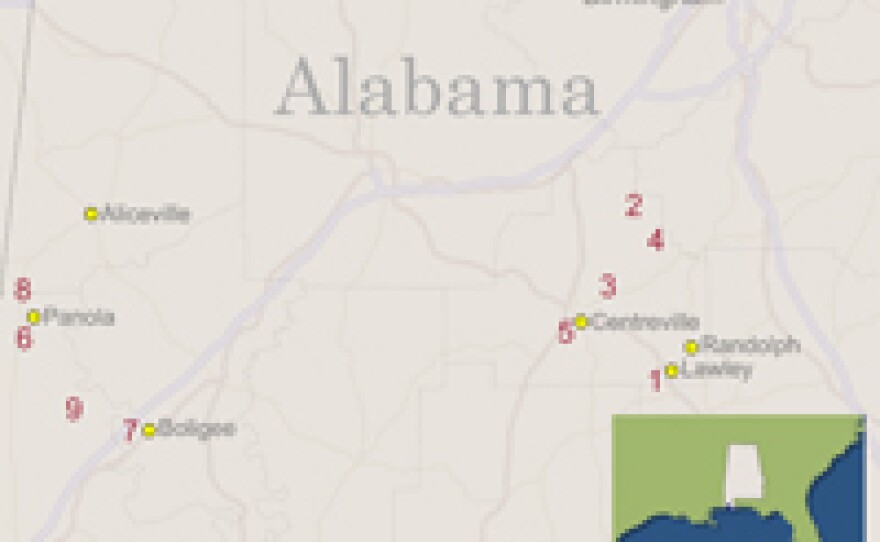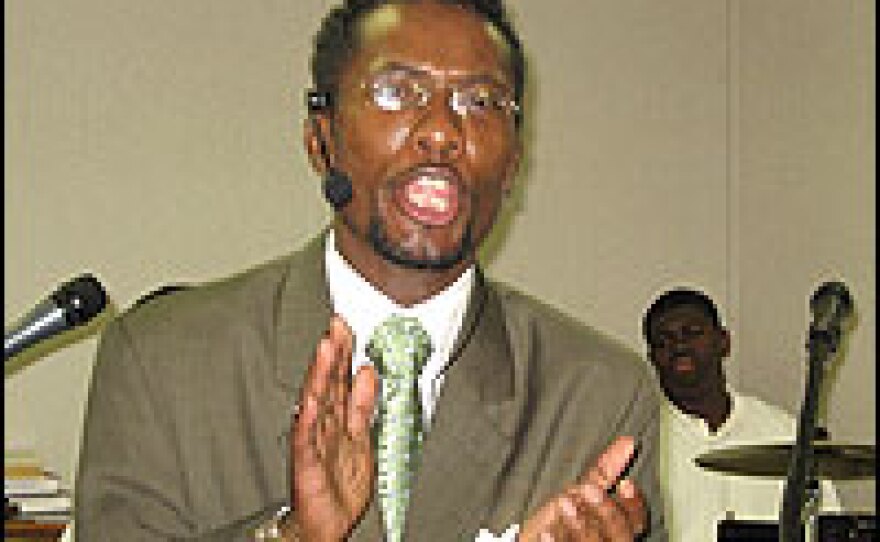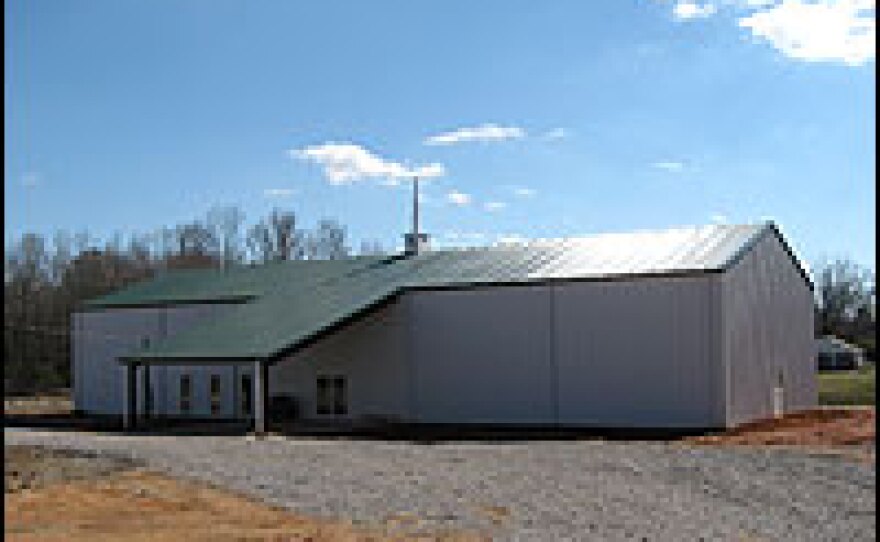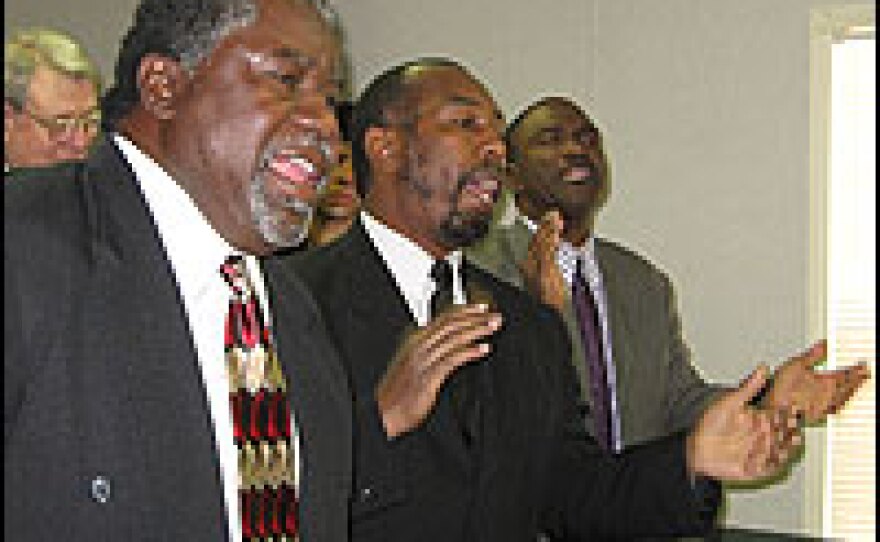



Galilee Baptist Church was one of nine churches set on fire last year in central and western Alabama. Like many of those churches, Galilee was completely destroyed in the blaze.
The string of attacks – which took place on two different nights – led to federal and state investigations. Some church members decided to sleep inside their churches to try and protect them from a fiery destruction. Those members were shocked when three local college students admitted to setting the fires one month later.
One year has passed since the attacks. Many churches are now rebuilding. Volunteers from a group called Carpenters for Christ are working on the new Galilee Baptist Church in Panola, Ala. After two weekends of construction, the church has begun to take shape. Externally, the structure looks like a large metal barn with a steeple dropped on top. But inside, the framing is almost finished. Nearly 100 people are involved in the project.
"There's been people from, like, five different counties in north Alabama, and some from Georgia, helping just today," says volunteer Bill Broadway. "It's just a great loss when a building is burnt. They got some T-shirts that say, 'You can burn a building, but you can't burn a church.' And that's right."
Men pass lengths of freshly cut wood to teammates, who nail the boards in place. Rev. Bob Little, the pastor of Galilee Baptist Church, shakes hands with as many volunteers as he can as they pack up for the day.
"What God has done has been really nothing but a miracle," he says.
The tiny community of about 400 people wants to make the new church a larger center in the heart of Panola. The 10,000-square-foot structure will house not only the church but classrooms, a library, computers and even a health clinic for people who currently have to drive 40 miles to the nearest hospital.
"Now you're able to help not just the church or an individual, but you're able to help a community — an area — and bring about healing across the state and the United States," Little says.
Part of the healing process for the community has included the continuation of Sunday services. The congregation of some 50 members meets in a trailer. Mike and Kim Cloyd, the parents of one of the students who pleaded guilty in federal court to setting the fires, attended a service last weekend. Kim Cloyd told the group that her son, Matthew, was sorry for having burned the churches.
"I know your hearts were broken, and you were devastated the night your church burned. Multiply that by 100 and a million," Kim Cloyd told the congregation. "But we love our son, and we will never walk away from him. We are there for him, and we visit him every weekend. And we will walk every step of the way with him through this journey."
Cloyd also says that Matthew has found faith in jail, and that he's prepared to accept whatever sentence he's given — even if that means 40 years in prison. The three students – Benjamin Moseley, Russell Debusk and Matthew Cloyd – initially said that they had burned the first five churches as a prank. They said they panicked and set the other four churches on fire to throw detectives off their trail. Many here still don't understand it.
Many of the churches targeted by the fires were predominantly black, but white congregations were struck, too. Over the past year, a small group of people from the western Alabama churches have forged an unusual partnership. They meet at least once a month in Aliceville, Ala., at a fast-food restaurant. Galilee Pastor Little routinely joins them. He says that in this area of Alabama, it's unusual for an older white gentleman and a younger black man to be friends, "calling each other and communicating with each other and respecting each other's ideas and visions."
Before the churches burned, Little says he rarely saw blacks and whites working together in western Alabama. He says the fires and reconstruction have brought the black and white communities closer together.
Copyright 2022 NPR. To see more, visit https://www.npr.org. 9(MDAzMjM2NDYzMDEyMzc1Njk5NjAxNzY3OQ001))







